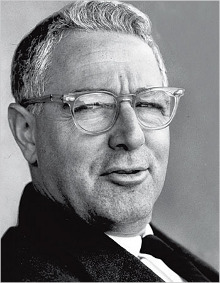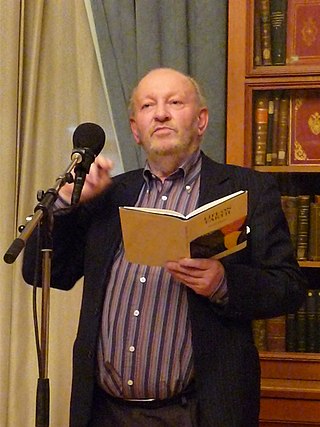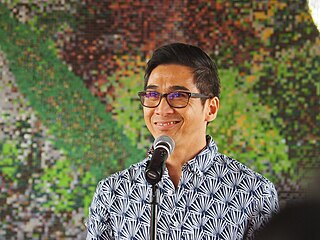Related Research Articles

Karl Jay Shapiro was an American poet. He was awarded the Pulitzer Prize for Poetry in 1945 for his collection V-Letter and Other Poems. He was appointed the fifth Poet Laureate Consultant in Poetry to the Library of Congress in 1946.
Robert L. Hass is an American poet. He served as Poet Laureate of the United States from 1995 to 1997. He won the 2007 National Book Award and shared the 2008 Pulitzer Prize for Poetry for the collection Time and Materials: Poems 1997–2005. In 2014 he was awarded the Wallace Stevens Award from the Academy of American Poets.

Philip Lamantia was an American poet, writer and lecturer. His poetry incorporated stylistic experimentation and transgressive themes, and has been regarded as surrealist and visionary, contributing to the literature of the Beat Generation.

Paul Blackburn was an American poet. He influenced contemporary literature through his poetry, translations and the encouragement and support he offered to fellow poets.

Mark Strand was a Canadian-born American poet, essayist and translator. He was appointed Poet Laureate Consultant in Poetry to the Library of Congress in 1990 and received the Wallace Stevens Award in 2004. Strand was a professor of English and Comparative Literature at Columbia University from 2005 until his death in 2014.

Thomas Kinsella was an Irish poet, translator, editor, and publisher. Born outside Dublin, Kinsella attended University College Dublin before entering the civil service. He began publishing poetry in the early 1950s and, around the same time, translated early Irish poetry into English. In the 1960s, he moved to the United States to teach English at universities including Temple University. Kinsella continued to publish steadily until the 2010s.

Donald Rodney Justice was an American poet and teacher of creative writing who won the Pulitzer Prize for Poetry in 1980.

Anthony Evan Hecht was an American poet. His work combined a deep interest in form with a passionate desire to confront the horrors of 20th century history, with the Second World War, in which he fought, and the Holocaust being recurrent themes in his work.

Michael Longley,, is an Irish poet.
John Montague was an Irish poet. Born in the United States, he was raised in Ulster in the north of Ireland. He published a number of volumes of poetry, two collections of short stories and two volumes of memoir. He was one of the best-known Irish contemporary poets. In 1998 he became the first occupant of the Ireland Chair of Poetry. In 2010, he was made a Chevalier de la Legion d'honneur, France's highest civil award.

Norman Derek Mahon was an Irish poet. He was born in Belfast, Northern Ireland but lived in a number of cities around the world. At his death it was noted that his, "influence in the Irish poetry community, literary world and society at large, and his legacy, is immense". President of Ireland Michael D Higgins said of Mahon; "he shared with his northern peers the capacity to link the classical and the contemporary but he brought also an edge that was unsparing of cruelty and wickedness."
Ciaran Gerard Carson was a Northern Ireland-born poet and novelist.

Forrest Gander is an American poet, translator, essayist, and novelist. The A.K. Seaver Professor Emeritus of Literary Arts & Comparative Literature at Brown University, Gander won the Pulitzer Prize for Poetry in 2019 for Be With and is chancellor of the Academy of American Poets and a member of the American Academy of Arts and Sciences.

Jonathan Williams was an American poet, publisher, essayist, and photographer. He is known as the founder of The Jargon Society, which has published poetry, experimental fiction, photography, and folk art since 1951.
Linda Alouise Gregg was an American poet.
Greg Delanty is an Irish poet. An issue of the British magazine, Agenda, was dedicated to him.
Arda Collins is an Armenian-American poet and winner of the Yale Series of Younger Poets Competition.
Jonathan Aaron is an American poet and author of the poetry collection Journey to the Lost City.

Joseph O. Legaspi is an American poet. He is the author of two full length poetry collections and two full-length poetry chapbooks.

The American poet Walt Whitman greatly admired Abraham Lincoln, the 16th president of the United States, and was deeply affected by his assassination, writing several poems as elegies and giving a series of lectures on Lincoln. The two never met. Shortly after Lincoln was killed in April 1865, Whitman hastily wrote the first of his Lincoln poems, "Hush'd Be the Camps To-Day". In the following months, he wrote two more: "O Captain! My Captain!" and "When Lilacs Last in the Dooryard Bloom'd". Both appeared in his collection Sequel to Drum-Taps later that year. The poems—particularly "My Captain!"—were well received and popular upon publication and, in the following years, Whitman styled himself as an interpreter of Lincoln. In 1871, his fourth poem on Lincoln, "This Dust Was Once the Man", was published, and the four were grouped together as the "President Lincoln's Burial Hymn" cluster in Passage to India. In 1881, the poems were republished in the "Memories of President Lincoln" cluster of Leaves of Grass.